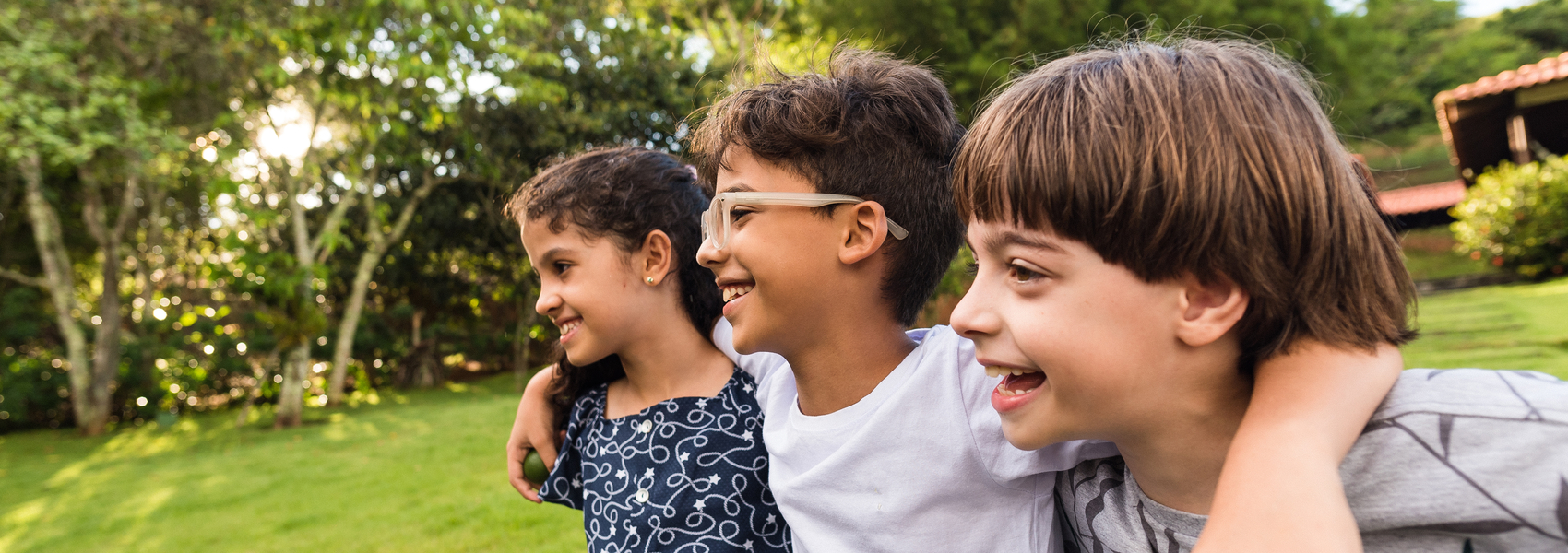Can't we all just get along?
3 tips to manage sibling rivalry between biological and adopted children
Angela Welch, MA, LPC

Our 7-year-old biological son and our 11-year-old adopted daughter constantly bicker and pick on each other. They’re in constant competition compared to their more loving and patient interactions with the younger children in our home. I think they’re just having typical sibling rivalry, but my wife worries our adopted daughter is targeting our son for being a biological child. How can we know for sure, and what can we do about it?
What's probable
I can hear the frustration now—“Can’t we all just get along?!” Without having direct observation of how your son and daughter interact with each other, I can’t speak in terms of certainty. But we can talk about what’s probable and things you can do to try to improve their relationship.
What’s probable is your daughter witnessed or experienced some abuse and/or neglect prior to living with you. Knowing that trauma impacts development, she may very well be cognitively, physically, or emotionally younger than 11 years old, putting her functioning age closer to your son’s age.
In that case, their age parallel may possibly play a role in sibling rivalry as they are trying to master similar skills, driving them to be competitive. Furthermore, your daughter’s history could have her feeling like her world is out of control. If she can prove herself to be stronger, faster, smarter—or whatever the dueling match is about—she may gain a sense of control if she wins.
What’s also possible is that, while they may be experiencing a similar developmental stage, one major task is to want to be more like peers rather than feel special or different. Your daughter may be facing a dissonance there and may feel very different as an adopted child with a history unlike your son’s. Looking deeper, she may also feel safer expressing that frustration by projecting it onto your son rather than risk pushing you and your wife away while she is still developing an attachment with you.
These are just a few possibilities, but in the end, you and your wife are probably both right. In my professional opinion, it’s impossible to assign all behaviors to one, single motivation. So you can assume both motivations are involved, and your family can engage in some of the activities listed below, which will help strengthen relationships regardless of any adoption/biological differences or sibling rivalry.
What you can do
1. Model healthy competition. Pick one night a week to play a slow-paced game as a family. Some of my favorites are listed below. Show your children the difference between being excited to win versus happy to see someone else lose. Role play situations with your wife that look like the not-so-nice competition you’ve seen between the children and then act out the hurt feelings and ways to repair the connection. Also, it’s fun to work as a team to build the tallest structure with paper and tape. Maybe the kids could be a team against Mom and Dad!
2. Build trust among all siblings. Sometimes just targeting your effort on the two children who are butting heads can work against you. They may find competing with each other earns them unplanned but rewarding negative attention from Mom and Dad. Instead, do some team- and trust-building activities with all the children. Some ideas might be setting up an obstacle course in the yard and having one child lead a blindfolded sibling to safety. If doing this activity outside is not an option, you can use printable mazes and have one child tell the blindfolded sibling to move the pencil left, right, up, or down to get through the maze.
3. Delight in their uniqueness. Show your children that your family celebrates everyone’s individuality as well as family togetherness. Rotate weekends for one-on-one time with each of the children for a couple of hours with you or your wife, offering two choices of activities that child would enjoy. It could be something like lunch with Mom or bowling with Dad. Another way to honor individual interests is by occasionally allowing each child to have exclusive time with friends. You can invite the child’s friends over to play while the other children spend time elsewhere. This gives the children freedom to not always have to “share” their friends and their free time with their siblings.
Be mindful that this relationship and family dynamic is new to everyone. Biological siblings typically grow together over many years and, even then, hit bumps along the way. The process of becoming an adoptive family takes time, like it would for any blended family. So don’t panic if the bonding between siblings is less than ideal. If you feel the sibling relationship is showing signs of deterioration rather than just slowly progressing, reach out to your local adoption agency or other adoption professionals for assistance.
Games that promote family connection
- Cranium WhooNu promotes learning about each other’s likes and dislikes.
- Cranium Family Fun Game encourages teamwork.
- Nurturing Game combines sharing thoughts and feelings with giving affection and compliments to family members.
- Simon Says and Red Light, Green Light are fun ways for children to take turns being in charge as the one giving directions.



